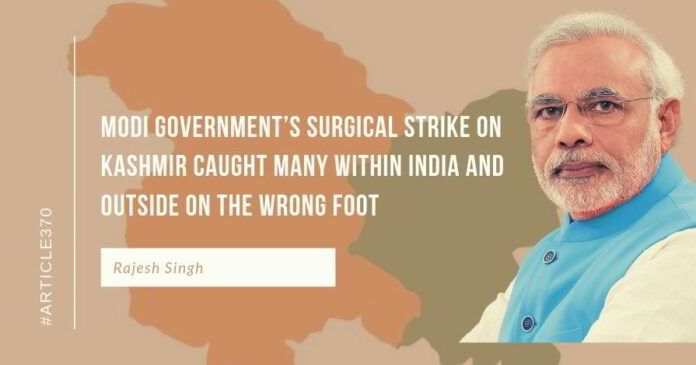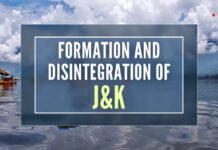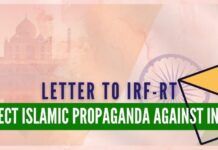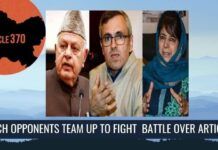
The Modi government now has its task cut out. It has to appoint a new Lt Governor for Jammu & Kashmir and for Ladakh. It has to reach out to the Kashmiri people and bridge the trust deficit.
What was considered virtually impossible to achieve and, therefore, futile to attempt even, was done by the Modi government on August 5. Article 370 was effectively abrogated, and so was Article 35A. The State of Jammu & Kashmir was turned into a Union Territory, and Ladakh was made an independent entity as a Union Territory without an Assembly, on the lines of Chandigarh. There have been speculative writing— and this exercise will only gain momentum in the days to come — on the roadmap for Jammu & Kashmir. There are also people who wonder whether the decisions will pass judicial scrutiny. But there are other aspects to the government’s historic decisions that seem to have received lesser attention than they deserved.
The first is that the move comes barely days after US President Donald Trump offered to not just mediate between India and Pakistan on Kashmir but also lied that Prime Minister Narendra Modi has sought his mediation. By stripping Jammu & Kashmir of its special rights that came with Articles 370 and 35A, the government has sent a clear message to Trump that Kashmir is India’s internal affair, that it will do what it considers as best in the larger interests of the people of the region and that it will brook no third-party interference. It will be best if Trump registers that message in his mind. Several US Congressmen had been shocked at Trump’s remarks and derided his immaturity. They would not be surprised at the Centre’s moves, though they must have been taken by surprise over the suddenness of the decisions. The message is not only for the Trump Administration but all those foreign powers who believed they could exercise their influence over India on Kashmir-related matters.
The Modi government has the support of a vast section of the population, which is evident by the celebratory mood of the nation.
The message is also for Pakistan, which has been rattled by the swift developments and called the decisions “illegal”. And the message is that India not just considers Kashmir within its territory as a non-negotiable issue but that it reiterates that Pakistan-occupied Kashmir is part of the Indian Union. The worry for Islamabad, and for the military establishment in Rawalpindi, is that New Delhi under the Modi rule could take decisive steps to reclaim Pakistan-occupied Kashmir at some point in the near future.
There is also apprehension in Pakistan that its strategy of proxy war in the region will be dealt a severe blow with the Centre effectively in control of the Union Territory. Pakistan’s stooges in the Hurriyat Conference have already been locked up, while leaders of the National Conference and the Peoples Democratic Party, many of whom practise soft-separatism, have been kept under close observation. It is unlikely that stone-pelters, who are the foot soldiers of the separatists and funded by Pakistan, will be handled with kid gloves any more. Nor will the ISIS and Pakistan flag-bearers be tolerated in Kashmir valley. It is unlikely that Pakistan will find many takers globally for the stand it has taken in the wake of the August 5 developments. The world is fed up of Pakistan’s duplicitous conduct in combating terrorism and is not going to lend support to it. In any case, most countries have taken the firm position that the Kashmir matter is for India and Pakistan to decide and that no third-party intervention is called for unless both sides agree to it.
By fully integrating Jammu & Kashmir with the rest of India through the virtual abrogation of Article 370 — only the first clause remains — the Modi government has brought to an end the special powers the erstwhile State had and which had created many conflicts. Jammu & Kashmir had its own Constitution, its own flag, and its own penal code. All that is gone now. The new Union Territory will now be fully governed by the Constitution of India and the Indian Penal Code, and it will have only the Indian Tricolour. With Article 35A gone, restrictions on owning property will be done away with, and various residents of Jammu & Kashmir will have rights that are enshrined in the Constitution of India, without restrictions. Various laws such as the Right to Information Act, the reservation Act and several others will be applicable to the new Union Territory — as well as to Ladakh.
The Modi government has the support of a vast section of the population, which is evident by the celebratory mood of the nation. Even inside Parliament, bitter foes of the government — the Telugu Desam Party, the Aam Aadmi Party, the Bahujan Samaj Party — backed the government’s Motions on Jammu & Kashmir. So did the Biju Janata Dal and the YSR Congress Party. Others such as the Nationalist Congress Party chose to walk out and not participate in the voting. The Bharatiya Janata Party’s ally, the Janata Dal (United) of Nitish Kumar also did not participate in the voting; it was not in favour of scrapping Article 370. The usual suspects — the Congress, the Left, the Samajwadi Party, the DMK, the Trinamool Congress and the RJD — voted against the government’s Motions. Like in the case of the triple divorce case, these opposing parties were out of synch with the popular mood and on the wrong side of history.
The Modi government now has its task cut out. It has to appoint a new Lt Governor for Jammu & Kashmir and for Ladakh. It has to reach out to the Kashmiri people and bridge the trust deficit. They must be made to understand that the decision to effectively scrap Article 370 and Article 35A will benefit them directly. They must be told how a few ruling families gained the most from these provisions while the rest of the population remained marginalised, without adequate economic development, education and healthcare. They have to be convinced that the unrest in the valley and the support to terrorists by certain vested interests had harmed the common’s man interests.
Besides, New Delhi must gear up for troubles ahead, both from across the border and internally. Neither Pakistan nor its sympathisers within Kashmir are going to take this humiliation lying down. They will seek to foment disquiet among the populace through false propaganda and instigate them into acts of violence. Constant unrest is what they thrive on, and they are least concerned with the loss of lives. Pakistan could step up its cross-border terrorist acts while its stooges here, once they are relatively free to conduct their business, will return with added venom to mislead the youth of the valley. The Centre must evolve a two-fold strategy: To win over the masses through developmental projects and jobs, and to crush militancy, both on the ground and at its ideological level, with a firm hand. De-radicalisation efforts must be accompanied by a crackdown on centres of radicalisation, whether it be the madrassa or other institutions. In the war against terror, nothing should be considered a holy cow.
Note:
1. The views expressed here are those of the author and do not necessarily represent or reflect the views of PGurus.











One of the best thing to have in independent india, since 1947. Well orchestrated by Modi, Shah, Doval and supported by entire BJP brigade, further lent their hand few pro India opposition parties. Rest of them are anti national. Media like NDTV is worst, doing their bit further propagate violence by inciting talk shows showing the abrogation of article 370 in a negative sense. This media and their editors, the supporters of Pakistan need to be thrown out of India.
The rarest of rarest events happened on August 5th. A historic decision with far-reaching implications was taken by numerous parties who sank their political differences to come together for the good of Bharat. This is gladdening. Next we must integrate PoK into our union. Then any then would a grave historic blunder that happens over seven decades back be righted. This government means business.